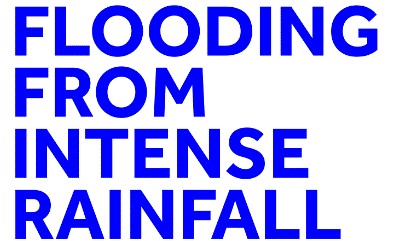Project

Forecasting Rainfall exploiting new data Assimilation techniques and Novel observations of Convection (FRANC) Project
Abstract
Brief periods of intense rainfall can lead to flash flooding with the potential to cause millions of pounds of damage to property, and to threaten lives. Accurate flood warnings even just a few hours ahead can allow preparations to be made to minimize damage. In order to improve the prediction of these events, more accurate forecasts of heavy rainfall are needed, which can then be used to inform flood prediction and warning systems. The UK Met Office is developing a new numerical weather prediction system with the goal of improving severe weather forecasts. This is a computer model that solves mathematical equations representing atmospheric motions and other physical processes such as cloud formation, with a horizontal grid spacing of 1.5km. This allows a more accurate representation of fine-scale features and explicit representation of storms, but the results are still dependent on the accuracy of the starting conditions or initial data describing the current state of atmospheric variables such as winds, pressure, temperature and humidity. Initial conditions are usually estimated using a sophisticated mathematical technique known as data assimilation that blends observations with model information, taking account of the uncertainties in the data. In this project, we propose fundamental research to reduce initial condition errors. The work will be carried out in a partnership between the Universities of Reading, Surrey and the Met Office. We plan to investigate ways of extracting the maximum information from weather radar observations of precipitation and moisture in the lower parts of the atmosphere. Although rainfall is usually well observed by weather radar, severe precipitation can cause the radar beam to lose energy, and thus the weaker returned signal may be misinterpreted, giving a lower rain-rate than in reality. We will develop algorithms to correct for this and other problems caused by severe rainfall. Recently, we have also developed techniques to infer humidity information about the lower atmosphere, and we plan to optimize the method and investigate the observation error characteristics, to prepare for this data to be assimilated by the Met Office. One of our goals is to use observations to provide information on the small scales without degrading the large scale weather patterns, which are themselves likely to be accurate. However, currently much of the small scale observational information is being lost by ignoring correlations between observation errors. We will develop a generic approach for treating observation correlations for a range of observation types. We will investigate mathematical methods that both capture the maximum amount of information contained in the observations, while still being practical for operational computations, which have to take place within a limited time frame. Another goal is to develop innovative ways of treating moist processes that are largely absent from present-day assimilation systems. We plan to design and test efficient and effective ways of assimilating moisture information that respect the intricate dynamical and physical relationships that operate in the atmosphere. If successful, such new approaches will allow better use of cloud and rain affected observations than at present. Predicting convective rain is made harder by the fact that some events are inherently unpredictable, even with good data assimilation and models, due to their high sensitivity to even small errors in the initial conditions. Further studies will be made to look at the dynamical reasons for the low predictability of such events using diagnostics derived from models and observations.
For further details of the FRANC project please also see Dance et al. (2019) article in the online resources linked to from this record: Improvements in Forecasting Intense Rainfall: Results from the FRANC (Forecasting Rainfall Exploiting New Data Assimilation Techniques and Novel Observations of Convection) Project.
Grant ref: NE/K008900/1
Details
| Keywords: | Doppler radial winds, data assimilation, convection permitting numerical weather prediction, convection, ensemble runs, CAPE, perturbation |
|---|---|
| Previously used record identifiers: |
http://badc.nerc.ac.uk/view/badc.nerc.ac.uk__ATOM__ACTIVITY_75cae864-c0bd-11e3-aec3-00163e251233
|
